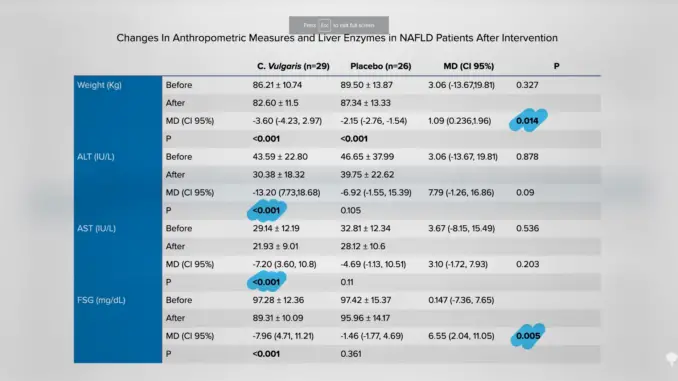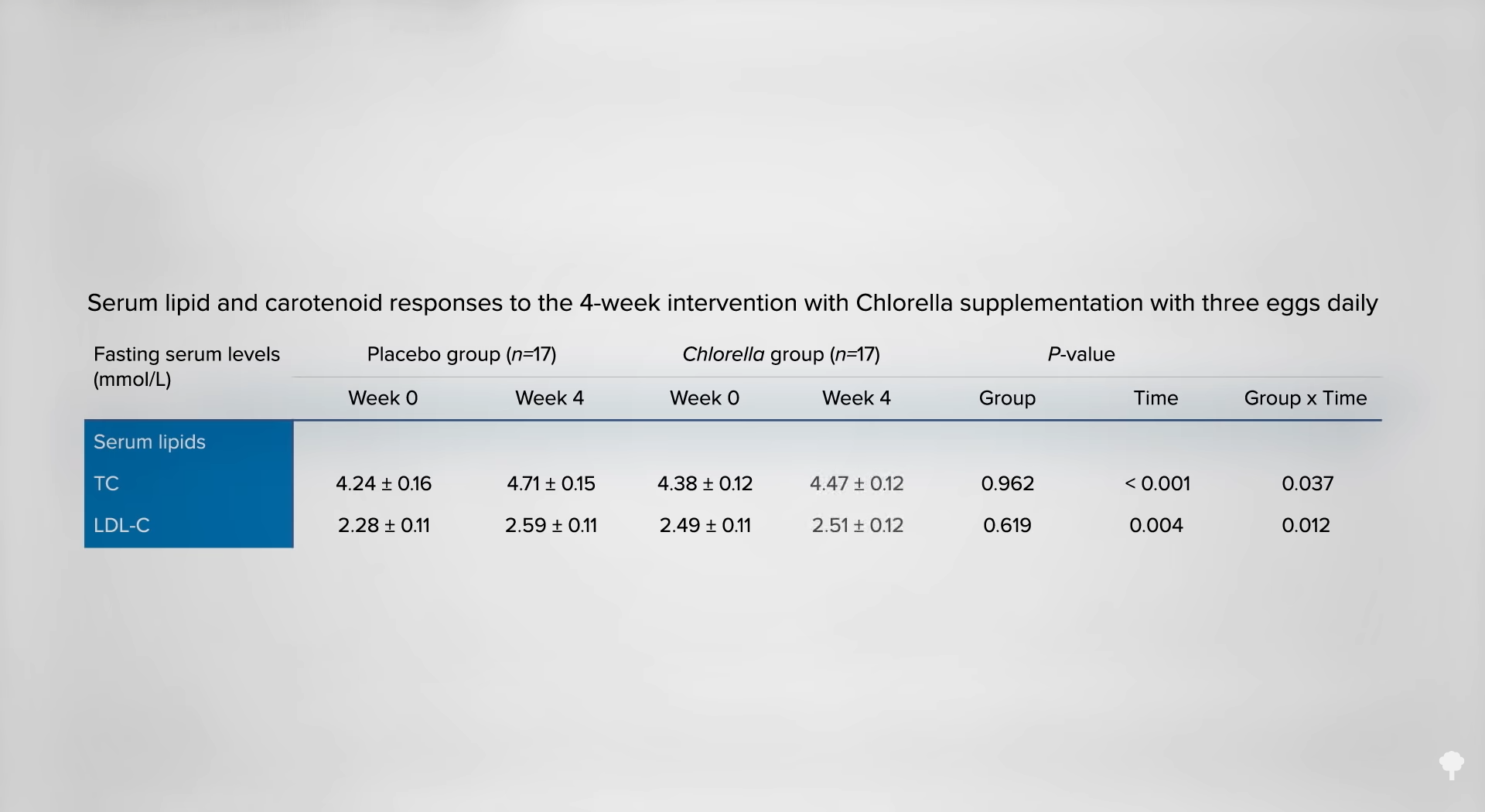
Chlorella is put to the test for liver disease, cholesterol, and detoxifying carcinogens.
“Depression is a debilitating mental disorder with a severe impairment to quality of life,” but, as I’ve discussed before, the drugs don’t work particularly well and have a bunch of side effects. “For these reasons, searching for alternative antidepressant agents with proper efficacy and safety is necessary.” Well, there is a green algae called Chlorella that “has been used as a dietary supplement and alternative medicine in Far East countries for hundreds of years.” Why not put it to the test?
One of the studies I review in my video Friday Favorites: Detoxifying with Chlorella is a randomized controlled trial of Chlorella in patients with major depression. Subjects were randomized to either standard therapy or standard therapy plus 1,800 mg of Chlorella, which is about three-quarters of a teaspoon a day, and the researchers found that the subjects on Chlorella had significant improvements in “physical and cognitive symptoms of depression as well as anxiety…” Wow!
Okay, but what word is missing in the title of the study? “A randomized controlled trial of…Chlorella.” What we want is a randomized placebo-controlled trial. In the study, researchers compared Chlorella to nothing. Half of the subjects got a special treatment (the Chlorella) while the other half got nothing. That’s the perfect set-up for the placebo effect, particularly when the measured outcomes are primarily subjective feelings. Now, you could argue, “Look, that much Chlorella would only cost about 10 cents a day, it’s healthy for you anyway, and depression is such a serious disease. Why not just give it a try?” Excellent points, but I’d still like to know if it actually works or not.
You may recall another Chlorella study I’ve discussed before that suffered from a similar problem, but at least that one had an objective quantifiable outcome: a significant decrease in liver inflammation. Nevertheless, that study also didn’t have a control group, so it’s possible the subjects would have just gotten better on their own for some reason.
What we need is a randomized, double-blind, placebo-controlled trial of Chlorella for liver disease…and we finally got just that. And, not just any liver disease, but non-alcoholic fatty liver disease, which, thanks to the obesity pandemic, now affects one in four people on Earth. Let’s see if 1,200 mg of Chlorella will help. (That’s just about a daily half-teaspoon, costing about nickel a day.) As you can see below and at 2:21 in my video, the researchers saw significant drops in liver inflammation, perhaps because the subjects lost significantly more weight—about a pound a week over the eight weeks—and that would explain the significant improvement in fasting blood sugars that was also found. The researchers conclude that Chlorella has “significant weight-reducing effects” with “meaningful improvements” in liver function.
How about a double-blind, randomized, placebo-controlled study of Chlorella for cholesterol? “Compared with the control group, the Chlorella group exhibited remarkable changes in total cholesterol…” How remarkable were the changes? Only 1.6 percent, which seems pretty unremarkable. And note that the study evaluated total cholesterol. If you look at what really matters—the so-called bad LDL cholesterol—there was no effect whatsoever, as you can see below and at 3:01 in my video. Thankfully, that’s not what other studies found. A meta-analysis of 19 randomized controlled trials of Chlorella for cholesterol, involving hundreds of subjects, found that those taking Chlorella did drop their LDL cholesterol by eight points on average and even dropped their blood pressure a few points. Four grams or more a day for at least eight weeks seems to be the magic formula, which would be about two daily teaspoons. That’s a lot of Chlorella, but if you can find a palatable way to take it, it might help.

In a more recent study, a double-blind, randomized, and placebo-controlled dietary cholesterol challenge, researchers had 34 study subjects eat three eggs a day (a total of 510 mg of dietary cholesterol) with either a few spoonful of Chlorella or a matched placebo for four weeks. As you can see below and at 3:57 in my video, the participants had a 14 percent rise in LDL cholesterol from just eating the eggs alone, but with the Chlorella, it was significantly less. Therefore, Chlorella can play “a useful role in maintaining healthy serum [blood] cholesterol levels,” though another way would be not to eat three eggs a day.

That reminds me of another study that was performed “to assess the ability of Chlorella vulgaris to detoxify carcinogenic HCAs,” which are heterocyclic amines, the cancer-causing chemicals created when you fry, bake, broil, or barbecue meat. The Chlorella did seem to lower the levels of one of the cooked meat carcinogens flowing through the subjects’ bodies but didn’t quite reach statistical significance, as you can see below and at 4:27 in my video.

What about polycyclic aromatic hydrocarbons (PAHs), another class of cancer-causing compounds found particularly in smoked meats and cigarettes that “includes numerous genotoxic [DNA-damaging] carcinogens”? Again, Chlorella did seem to lower levels but not significantly so. Still, if you’re going to have eggs and ham for breakfast, might as well try to add lots of Chlorella to make them green eggs and ham.